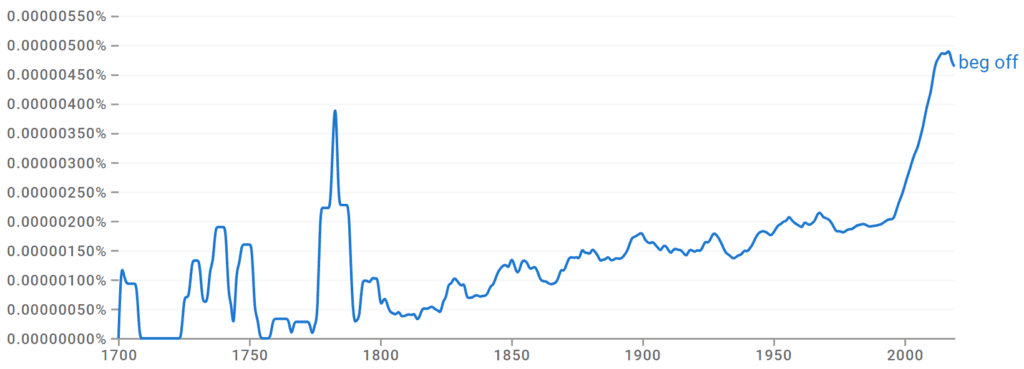The formation of the English language is attributed to an adaptation of various European languages that have been embraced over the course of hundreds of years. This practice has led to an interesting term that is popularly used today to ask for a release from an obligation: to beg off.
There comes a time in most people’s lives when they need to ask politely to be excused from something they were expected at or had responsibility for. When you use the phrasal verb beg off in the context of needing to be excused, you ask in a manner that assumes forgiveness for quitting something or someone is being given.
Let’s learn about the use of the phrase beg off, why it’s been used for hundreds of years, and how to properly use it today.
What Is the Meaning of the Term Beg Off?

To beg off means to ask to be excused from something or to be released from an obligation. In truth, beg off is a request to not think ill of the person who is reneging on a promise and is somewhat an overly polite way of expressing the desire to be released from an obligation.
For example:
- She hated having to beg off the girl’s weekend, but after both her children came down with a stomach bug, she couldn’t justify leaving them to recover alone with a babysitter.
- Wyatt had to beg off the study session after working a double shift the night before; he had to catch up on sleep.
- Would anyone be upset if I begged off the 5K run today? My fees are still paid and going to charity; I just don’t feel like running this morning.
Is Beg Off Hyphenated?
Although you may occasionally see beg off spelled with a hyphen, this is considered grammatically incorrect as it is a phrasal verb consisting of two separate words.
Origins of the Phrase Beg Off

When I mentioned that beg off had an interesting inception influenced by multiple languages, I wasn’t kidding. The verb to beg goes back to at least the 13th century and was likely taken from proto-Germanic and Old-French origins. It originally was used to mean “to ask alms,” but by the 16th century, it had taken on the meaning to “ask for” just about anything—such as a favor, pardon, question or an excuse.
To beg off, meaning to “obtain release from [something] by entreaty,” is from the early to mid-18th century.
Let’s Review
To beg off something has been around since at least the mid-18th century to mean a release from a previous obligation. It is used with the assumption that the release is understandable and forgivable.
The person asking to beg off usually does so with a reasonable excuse and may feel remorseful for asking, but the situation warrants a polite approach.
Want to know more idioms? Check out some others we covered:
